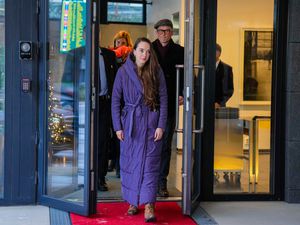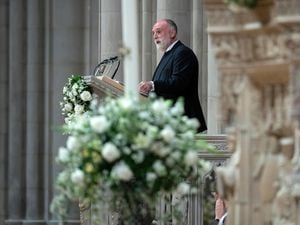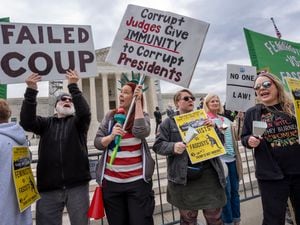Nobel laureate: There can be no lasting peace in Ukraine without justice
Russian President Vladimir Putin ‘thinks he can do exactly what he wants’, Oleksandra Matviichuk told reporters at Oslo airport.

There will be no lasting peace in Ukraine until there is justice and human rights, the head of the Ukrainian Centre for Civil Liberties said as she arrived in Oslo to receive the Nobel Peace Prize with fellow human rights campaigners from Belarus and Russia.
Russian President Vladimir Putin “thinks he can do exactly what he wants”, Oleksandra Matviichuk told reporters at Oslo airport.
“There will be no lasting peace in our region until we achieve justice.”
“Human rights and peace are inextricably linked.
“A state that systematically violates human rights does so not only against its own citizens, but against an entire region, an entire world. Russia is a great example of this,” she said, according to the Norwegian news agency NTB.
This year’s Nobel Peace Prize was shared by jailed Belarus rights activist Ales Bialiatski, the Russian group Memorial and the Centre for Civil Liberties.
The Norwegian Nobel Committee said the laureates “have made an outstanding effort to document war crimes, human right abuses and the abuse of power. Together they demonstrate the significance of civil society for peace and democracy”.
The prize was seen as a strong rebuke to the authoritarian rule of Mr Putin.
“We have received this award during a war that started in 2014 and which has escalated into a bloody and cruel conflict,” Ms Matviichuk said, adding that getting the Nobel Peace Prize “entails a great responsibility”.

Jan Rachinsky, chairman of the International Memorial Board, who also arrived in Oslo on Thursday to receive the prize, said the situation in Ukraine reminded him of the conditions in Russia during the Second World War, and what his own relatives then experienced – a lack of electricity, heat and food.
“The most important message from us is that the world must react more strongly to violations of human rights,” he told reporters at the airport, according to NTB.
Natallia Pinchuk, the wife of Ales Bialiatski, will receive the prize on her husband’s behalf, the Norwegian Nobel Committee has said.
Mr Bialiatski, who founded the non-governmental organisation Human Rights Centre Viasna, was detained following protests in 2020 against the re-election of Belarusian President Alexander Lukashenko. He remains in jail without trial and faces up to 12 years in prison if convicted.
While the peace prize is handed out on Saturday in the Norwegian capital, the other Nobel awards are given during a ceremony in Stockholm at the same time, in line with award founder Alfred Nobel’s wishes.
The awards are always handed out on December 10, the anniversary of Mr Nobel’s death in 1896.
Each prize includes a diploma, a gold medal and a cash award of 10 million kronor (about £790,000) to be shared among the recipients.





